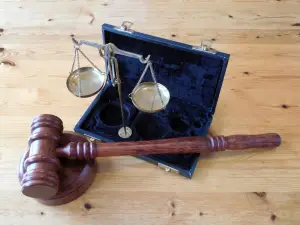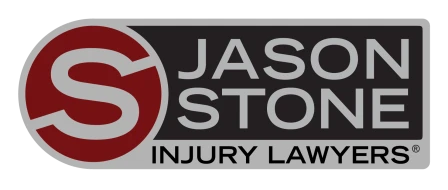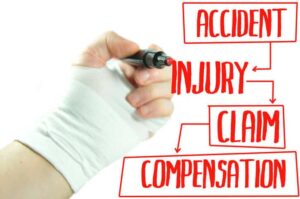
While you may know personal injury law involves accidents and harm caused by another’s carelessness, you may not know whether your injury qualifies you to receive damages. Jason Stone Injury Lawyers wants to help educate clients and harmed parties on their rights and help them make sound legal choices. Find out whether the harm you endured qualifies as a personal injury.
In the United States, most personal injury claims stem from motor vehicle accidents. Inattentive drivers may neglect to keep both eyes on the road or speed in residential areas, either of which may harm innocent people. Usually, the careless motorist bears responsibility for car accidents, but sometimes, a third party becomes the at-fault party. For instance, perhaps the driver followed the rules of the road, but the car’s manufacturer released faulty components that triggered the collision and the resulting harm.
For car crashes that happen in “no-fault” states, accident victims rely on their own insurance policies to recover compensation. In these states, injured victims may only take legal action when they sustain serious injuries.
When health care providers do not treat patients according to the latest standards of care and cause injury, harmed individuals may have a medical malpractice personal injury case against the negligent doctor, pharmacist or another medical professional. Examples of medical malpractice include medication errors, wrong-site surgery, accidental amputation and birth injuries. Patients must remember that even if they do not get the results they desire from a specific medical treatment, that does not make them a victim of medical malpractice.
When property owners fail to uphold their responsibility to keep their premises safe and clear of peril, guests, visitors or customers may hurt themselves unnecessarily. For example, store owners must put up signs alerting customers of wet floors and take care of spills as quickly as possible. Guests may slip and fall while visiting someone.
Much like medical malpractice, not every slip-and-fall injury that happens on another’s property qualifies as a personal injury. The property owner’s legal responsibility varies depending on the state and specific circumstances.
Libel and Slander
Courts consider some professional injuries personal injuries, even if no one endures physical harm. Libel and slander are false statements that compromise a person’s professional reputation. To stand the most favorable chance of winning their case, plaintiffs must prove the defendant wrote or spoke an untrue statement that ended with the plaintiff suffering financial harm. Defamation works differently for public figures and celebrities. They must show the defendant made the statement carelessly and without regard for the truth, or that the false statement was deliberately made.
Rather than injury, some negligent actions end in death. Personal injury suits for wrongful death often stem from medical malpractice, nursing home neglect, construction site accidents, car crashes and defective products. The decedent’s surviving family members may have grounds to take legal action against the responsible individual or entity. In their suit, they may claim damages for the deceased’s burial and funeral expenses, wages the decedent would have earned and benefits lost because of the wrongful death.
Usually, dog owners take full financial responsibility for the harm their pets cause others, but laws vary from state to state. In zip codes with strict liability laws, owners bear liability for dog bites even if their dog never bit anyone or showed aggression before. Other states follow the “one bite” rule, which means dog owners only bear liability if their dog bit someone before or displayed hostility.
Battery and Assault
Assault and battery are two examples of intentional tort, which include intentional actions meant to harm others, not accidents. Depending on the intentional action, someone guilty of an intentional tort may also face criminal charges and a personal injury suit.
Usually, when employees become injured on the clock, they file a workers’ compensation claim rather than hit their company with a personal injury lawsuit. One benefit of workers’ comp for employers is employees cannot take legal action against them if the company provides workers’ comp insurance. The policy provides benefits for injured workers, covering medical treatment, temporary total disability and permanent partial disability.
When employers commit intentional torts that harm employees, the worker could have grounds to file a personal injury suit against her or his company. Sometimes, third parties cause workplace accidents that may create grounds for legal action.
Personal Injury Lawsuits & Settlements
Now that you have a better idea of which injuries qualify as personal injuries, you deserve to learn more about how personal injury suits work. When individuals sustain injuries because of another’s negligence, the responsible party’s insurance policy may cover the resulting medical bills, future medical care and lost wages with a settlement. Another outcome for personal injury cases is for the plaintiff to sue the responsible entity or individual.
Informal Settlement
Usually, most personal injury cases resolve with a settlement offer. The defendant, plaintiff and their legal representatives and insurance providers work together to negotiate a fair settlement. After finishing negotiations, all involved sign a written agreement to not take further legal action, such as filing a lawsuit.
Formal Lawsuit
If the plaintiff and defendant cannot reach a settlement agreement and negotiations stall, the harmed party could escalate the situation with a civil complaint that initiates a lawsuit. The complaint alleges the defendant acted carelessly concerning an injury or incident that ended in physical harm.
Personal Injury and Negligence
No matter the personal injury you suffer, you must prove the other party’s negligence to stand the most favorable chance of recovering damages. The four vital elements of a negligence claim include duty, breach, causation and damages.
Duty
Plaintiffs must get clear on whether the defendant owed them a duty of care. For instance, drivers owe everyone on the road a duty to drive the speed limit and uphold the rules of the road, and doctors owe their patients a responsibility to treat them according to the latest medical standards.
Breach
An individual or entity may breach a duty of care by either doing or not doing something a reasonably prudent person would or would not do. The legal term “reasonably prudent person” refers to how an average citizen would react under specific circumstances. A judge or jury may find the at-fault party guilty of negligence if an average person with the same information as the defendant would have made a different decision.
Causation
The plaintiff must prove how the defendant’s breach caused him or her harm. Even if evidence shows the defendant acted with disregard, the injured party must show how that disregard resulted in the injury to win a personal injury case. Causation also considers whether the defendant knew or should have known her or his actions would harm others.
Damages
The damages element of personal injury cases hinges on the court compensating the harmed plaintiff financially.
Call Us Today
Do not risk running out of time to take action for your injury. If you still feel unsure whether your situation qualifies as a personal injury, or if you have more questions, reach out to Jason Stone Injury Lawyers. Thanks to our Stone Cold Guarantee, our clients need not worry about paying us until we help them get paid. Explore your case and protect your rights today by calling a representative at 800-577-5188.
Not Trusting What You’re Being Told?
Better Phone Stone
800-577-5188
 START MY NO OBLIGATION CONSULTATION
START MY NO OBLIGATION CONSULTATION











